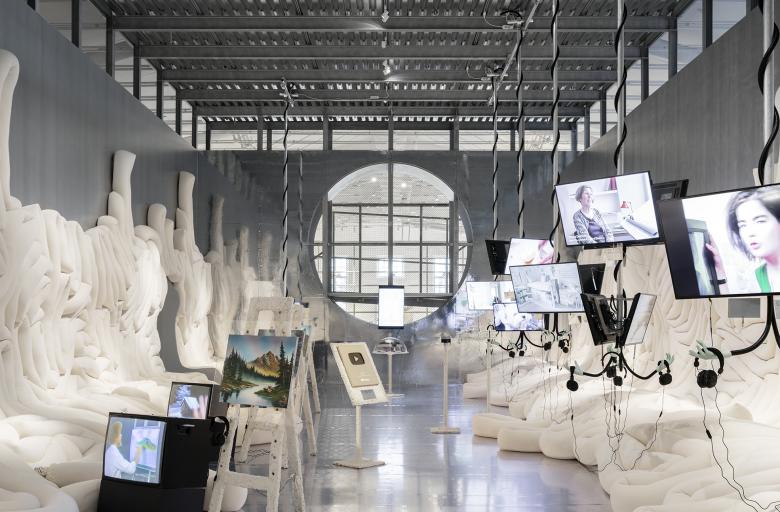Virtual ASMR
Weird Sensation Feels Good "opened" at ArkDes in Stockholm on April 7 with a Virtual Vernissage featuring commentary from experts in ASMR and a tour by curator James Taylor-Foster.
Weird Sensation Feels Good is billed as the first museum exhibition dedicated to ASMR, which stands for Autonomous Sensory Meridian Response, "a static-like feeling of low-grade euphoria or deep calming, triggered by gentle sound, touch and movement," per the ArkDes literature. Even though the acronym is recent, ASMR is a phenomenon known to just about everybody, particularly since a huge segment of YouTube is devoted to videos with whispering and other soft sounds. Considering that the videos produced by so-called ASMRrtists are an important part of WSFG, the coronavirus-induced virtualization of the exhibition is not so bad; or at least it's not as dramatic as it would be with other subjects.
Given the end date of November 1, visiting the exhibition in person may just be a possibility for those interested. There, inside ArkDes's Boxen space, they would take off their shoes, don a robe and be confronted with a kilometer-long "pillow" by ĒTER, which designed the exhibition. Suspended from the ceiling in front of the pillow are monitors and headphones enabling visitors to watch videos, be it a dog getting its fur trimmed or Björk talking about her television set.
ASMR tends to be considered an aural phenomenon, but the exhibition also explores triggers that are visual and tactile, such as the digital graphics of Andreas Wannerstedt or the silicone smartphone wraps made by Marc Teyssier last year as part of a research project.
Watch the 90-minute Virtual Vernissage:
Not surprisingly, the Virtual Vernissage ends with a look at Bob Ross, whose soft voice, reassuring sentiments, and noises made by brushes and palette knifes made him the king of "unintentional ASMR." With all 31 seasons of his The Joy of Painting on YouTube, Bob Ross is now a celebrity with younger generations, not just those who, like myself, grew up with his show broadcast on PBS. The online catalog has led people to edit clips together, removing the parts that aren't triggers and resulting in, for example, 47 minutes of just Bob Ross's knife on the palette and the canvas. "Weird sensation feels good" is well put.



